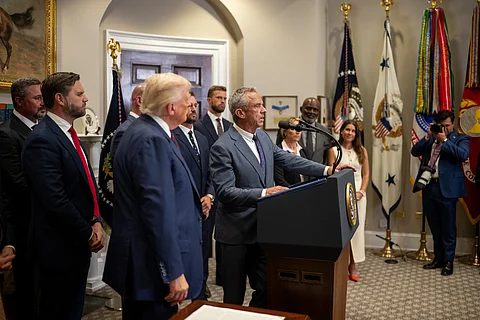

The US Supreme Court has ruled that the Trump administration can cut $783 million in National Institutes of Health (NIH) research funding as part of its initiative to reduce federal diversity, equity, and inclusion (DEI) programs.
The decision, made on August 21, 2025, allows the administration to proceed with canceling hundreds of grants while a related lawsuit continues in lower courts.
In a 5-4 decision, the Supreme Court lifted a prior order by US District Judge William Young in Massachusetts, who had ruled in June that the grant terminations were “breathtakingly arbitrary and capricious” and violated federal law.
The majority, supported by five conservative justices, determined that challenges to the funding cuts should be filed in the US Court of Federal Claims, not district courts.
Justice Neil Gorsuch, in a brief opinion, criticized lower courts for disregarding prior Supreme Court rulings, stating, “All these interventions should have been unnecessary.”
However, the Court, with a key vote from Justice Amy Coney Barrett, kept the administration’s anti-DEI directive blocked for future funding.
The plaintiffs, including 16 Democratic-led states and public health advocacy groups, argued that the cuts, part of an estimated $12 billion in terminated NIH projects, would cause “incalculable losses in public health and human life.”
Affected research includes studies on breast cancer, HIV prevention, Alzheimer’s, and suicide, often targeting minority communities.
They contended that halting studies mid-progress disrupts data collection and hinders scientific breakthroughs.
Justice Ketanji Brown Jackson, in a dissenting opinion, criticized the decision as “Calvinball jurisprudence with a twist,” arguing it undermines reasoned agency decision-making.
The Trump administration, backed by the Justice Department, maintains that funding decisions should not face judicial oversight and that DEI initiatives can “conceal insidious racial discrimination.”
Solicitor General D. John Sauer argued that the case belongs in the Court of Federal Claims, citing a prior Supreme Court ruling on teacher-training grant cuts.
While the decision allows the administration to move forward with the $783 million in cuts, the blocked anti-DEI directive limits its ability to apply the policy to future grants.
The lawsuit, described by plaintiffs as addressing an “ongoing ideological purge,” remains active in lower courts.